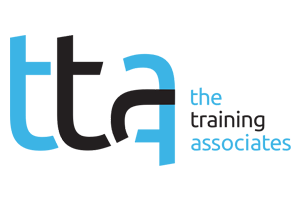The Talent Challenge
Americans, in large part, pursue postsecondary education because they believe it will help them launch, reboot or advance in their careers. These motivations are especially clear in times of economic crisis, but even in more stable times, people expect programs to not only end in a credential but in a good job. And, for decades, degrees fairly reliably delivered on that promise.
But today’s employers have grown increasingly frustrated with the quality of talent and with the use of degrees as a proxy for competency. They want greater precision regarding what graduates actually know and can do. Even before the pandemic, two-thirds of employers were formally moving away from the degree and toward competency-based hiring or were actively exploring such a change.
The White House, for example, recently moved the federal government — a massive nationwide employer —in this direction through an executive order to move federal hiring from a focus on degrees to skills-based hiring. The economic fallout from COVID-19 will likely hasten this move, as employers increasingly can only afford to hire workers who have the essential skills, knowledge and abilities for their work.
Competency-based education (CBE) is, by definition, well aligned with this shifting focus. CBE programs often end in a degree, but the discrete competencies learned are as critical as the credential itself. Focusing on competencies also enables the use of certificates and other short-term educational programs that position workers to quickly upskill or reskill to find new work, a particularly valuable proposition right now.
As we make our way through and beyond the COVID-19 crisis, we can’t afford a repeat of the last recession, when many workers went back to school, but many of the programs they chose didn’t provide a clear return on investment (ROI). This time around, we must ensure the programs people turn to can actually deliver on outcomes for those individuals and for employers.
The Education Solution
That’s why researchers like Michelle Weise of Imaginable Futures and Richard Price of the Christensen Institute are bullish on its future during the pandemic and beyond. Degrees alone, Price says, “are like black boxes—we kind of know what they mean, but they don’t let us know what people can do. Competency-based learning allows schools and employers to communicate more openly.”
In many ways, CBE is still in its adolescence, with large numbers of institutions seeing its promise but relatively few implementing it on a large scale. Fortunately, in recent years, leaders in the field have made major strides in developing standards and a clear framework for quality CBE — important groundwork as the field looks to expand. Moreover, as it relates to how CBE translates to the world of work, we have a growing body of experience we can draw on.
Institutions like Brandman University have excelled in aligning CBE with workforce needs by focusing on particular fields — in this case, business and information technology (IT) — and developing a deep understanding of the competencies required, how to develop and measure them, and how to help learners articulate them to employers.
Others, like South Texas College, have used competency-based education to expand opportunity in otherwise underserved regions, improving the economic prospects of students by meeting the talent needs of local employers. A decade ago, South Texas was one of few colleges in the state to meet the then-governor’s challenge to offer bachelor’s degree programs for no more than $10,000 in total. Designing the program as competency-based education enabled the college to hit that affordability benchmark while maintaining a high quality, and the model’s flexibility made the program particularly attractive to adults already in the workforce. As the college has moved more programs to competency-based, enrollment in those programs has grown — a testament to the appeal of learning that isn’t tied to time in class and can happen just about anytime, anywhere.
“Students don’t have to sit down 48 hours in a seat to finish a course,” Ali Esmaeili, dean of math, science, IT and bachelor programs at the college, told us. “They know if they have prior knowledge, they can go faster, and that’s a real value.”
CBE also is providing real value for employers by expanding the talent pool in regions otherwise lacking in professionals with postsecondary credentials — a particular challenge in places like the Rio Grande Valley but one that’s familiar to employers in any region of the country.
The urgency around helping more adults earn career-connected credentials has never been higher. There is no silver bullet for returning Americans to work, but quality competency-based education will be an important tool for tackling the challenges facing worker-learners and employers today and into an uncertain future. By distilling learning to the competencies that matter, we can unlock much greater opportunity.

